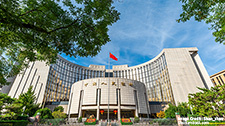Development

Despite rapid progress on the reduction of poverty, particularly in China and India, the Asia Pacific region is still home to two-thirds of the developing world’s poor. Development invariably means change, and that involves compromises between traditional and contemporary ideas. Therefore, achieving positive and broad-based development results in any country involves a slow process of social change that is both multi-faceted and multi-dimensional. The world is changing rapidly with increasing trends of urbanization, aging populations, a changing international political and economic order and globalization amongst many other transformative processes.
ISDP assists partners to access knowledge, resources and experience in order to strengthen their development plans and policies so as to improve the lives of their people. As such, ISDP is engaged in research on development issues (poverty, human rights and internally displaced people), government-to-government policy dialogue, holds and organizes capacity building programs for key sectors (such as land reform, crisis prevention and recovery, resource and agricultural development) within developing countries, acts as a hub for South-South and North-South dialogue on development issues and enables inter-cultural exchanges to promote change.
Related News
Related Publications
-
The Future of Korean Research from a Nordic Perspective
The Nordic countries are long-standing partners to South Korea, engaging in dialogue and collaborating on regional and global concerns since 1959. Despite a long history of state-level cooperation, the Nordic […]
-
Exploring Work-Life Balance Through a Gender Lens: Experiences from South Korea and the Nordics
Balancing professional and personal opportunities and responsibilities is essential for improving well-being and productivity, prompting many governments and businesses to introduce policies supporting this goal. However, many people still struggle […]
-
The Economic Leash: China’s Financial Tethers and Global Power Plays
China’s emphasis on Gross Domestic Product (GDP) growth and its integration into global markets have allowed it to wield significant influence internationally. Nonetheless, this focus on rapid expansion has created […]
-
Russia is a systemic threat and Europe must wake up to face it
While travelling in Europe lately, it has become clear there are a couple of widespread beliefs that do not accurately capture the essence of the Russian challenge after its war […]
-
Why the World Can’t Afford to Keep Taiwan Out of Interpol
Executive Summary Taiwan’s exclusion from the International Criminal Police Organization (Interpol) presents a critical gap in the global effort to combat transnational crime. As criminal networks become more sophisticated, particularly […]




